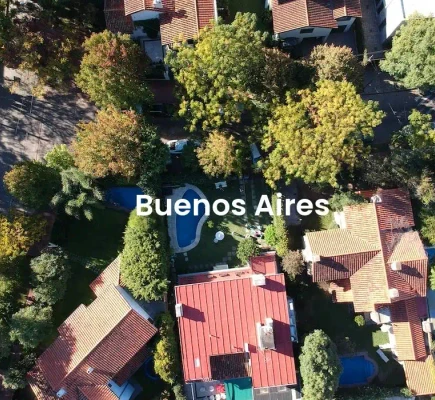Maximizing Airbnb Income: A Host's Guide

How To Calculate Airbnb Income?
Brief Overview of Airbnb Hosting
Airbnb hosting is a burgeoning economic model that epitomizes the evolution of the sharing economy. It entails individuals, known as hosts, opening their homes or properties to travelers seeking short-term accommodations. This innovative concept has revolutionized the hospitality industry, offering unique and personalized lodging experiences that rival traditional hotels.
This paradigm shift in the lodging landscape is underpinned by a robust digital platform, Airbnb, which connects hosts and guests worldwide. By participating in this ecosystem, hosts leverage their properties as income-generating assets while guests gain access to a diverse array of accommodations, from cozy apartments to opulent villas.
In essence, Airbnb hosting can be a lucrative venture, but its success hinges on the ability to effectively calculate and optimize income. To embark on this journey, hosts must first establish themselves in the Airbnb community and comprehend the intricacies of the platform.
Importance of Calculating Airbnb Income
The importance of calculating Airbnb income cannot be overstated. For hosts, it serves as the compass that guides financial decisions and provides clarity regarding the profitability of hosting. This calculation is not merely an exercise in arithmetic; it is the foundation upon which hosts can build a sustainable and prosperous hosting enterprise.
Precise income calculation empowers hosts to make informed choices, such as setting competitive nightly rates, reinvesting in their properties, and expanding their hosting portfolio. Moreover, it allows hosts to identify areas where they can reduce costs, optimize revenue, and enhance the overall guest experience.
Equally significant is the necessity of understanding the tax implications associated with Airbnb income. The tax landscape for hosts is complex and varies by location, necessitating meticulous record-keeping and compliance with local tax regulations.
In the subsequent sections of this article, we will delve into the intricacies of calculating Airbnb income, providing hosts with the knowledge and tools to embark on their hosting journey with confidence.
Setting the Foundation
Creating an Airbnb Hosting Profile
In the realm of Airbnb hosting, creating an enticing profile is akin to crafting an inviting storefront for your property. It is the initial interaction between hosts and potential guests, setting the stage for a successful hosting experience. Let's delve into the key elements:
Profile Picture
Your profile picture is the first visual impression you make on potential guests. Opt for a clear, friendly, and professional photo. A warm smile and approachable demeanor can go a long way in instilling trust.
Property Photos
High-quality photos of your property are the heart of your listing. Showcase the uniqueness and appeal of your space. Ensure that the photos accurately represent what guests will experience during their stay.
Detailed Description
A comprehensive and well-written property description is essential. Highlight the key features, amenities, and the overall atmosphere of your space. Use engaging language to draw potential guests in.
House Rules
Set clear and reasonable house rules that reflect your expectations and ensure a smooth and enjoyable stay for both you and your guests. Address issues like smoking, pets, and quiet hours.
Understanding Airbnb Pricing Models
Airbnb offers various pricing models that enable hosts to tailor their pricing strategy to their property and market dynamics. Understanding these models is pivotal to optimizing income:
Dynamic Pricing
Dynamic pricing is an algorithm-based approach that adjusts your nightly rates based on supply and demand factors. It takes into account local events, seasonality, and occupancy rates. This model can help hosts maximize income during peak periods.
Base Pricing
Base pricing is the foundational rate for your property. It's crucial to set a competitive but profitable base rate. This rate forms the starting point for dynamic pricing adjustments.
Length of Stay Discounts
Airbnb allows hosts to offer discounts for longer stays. Consider implementing this feature to attract guests who prefer extended visits, potentially increasing your overall income.
Extra Fees
Hosts can charge additional fees for cleaning, extra guests, or security deposits. Understanding when and how to apply these fees is essential to ensure that your expenses are covered without deterring potential guests.
By mastering the art of creating an enticing profile and comprehending the intricacies of Airbnb's pricing models, you lay a solid foundation for a successful hosting experience. In the subsequent sections, we will explore how to track your revenue sources, manage expenses, and optimize your income for sustained hosting success.
Tracking Revenue Sources
Nightly Rates and Booking Frequency
Determining your nightly rates and understanding booking frequency are essential aspects of tracking revenue sources on Airbnb. This information forms the bedrock of your income calculation.
Competitive Analysis
To set your nightly rates, conduct a thorough competitive analysis. Research properties in your area with similar characteristics, such as size, amenities, and location. This knowledge helps you establish a competitive yet profitable rate.
Seasonal Adjustments
Recognize that your nightly rates may vary throughout the year due to seasonal demand. Charge more during high season and consider discounts during off-peak periods to attract bookings.
Booking Frequency
Tracking booking frequency enables you to gauge the popularity of your listing. A steady flow of bookings indicates demand, but irregular bookings may signal the need for adjustments in your listing, pricing, or marketing strategies.
Additional Services and Fees
Beyond nightly rates, Airbnb hosts can augment their income through additional services and fees. These can significantly impact your overall revenue:
Cleaning Fees
Charging a cleaning fee is common practice and helps cover cleaning costs between guest stays. Be transparent about this fee in your listing to manage guest expectations.
Extra Guest Charges
Consider charging extra fees for additional guests. Ensure your listing specifies the maximum number of guests allowed, and price accordingly to account for increased wear and tear.
Service Offerings
Offering additional services, such as airport pickups, guided tours, or meal preparation, can be a lucrative revenue source. Highlight these services in your listing and communicate their availability to guests.
Airbnb Experiences
If your expertise extends beyond hosting, you can create and promote Airbnb Experiences. These unique activities can be another source of income while enriching your guests' stay.
By meticulously tracking your nightly rates and booking frequency, along with leveraging additional services and fees, you can diversify and maximize your Airbnb income. In the subsequent sections, we will delve into managing expenses, calculating occupancy rates, and tools and resources to aid in this process.
Expenses and Deductions
Identifying Operating Costs
Understanding and managing your expenses is crucial in maximizing your net income as an Airbnb host. These expenses fall into several categories:
Property Maintenance
Regular upkeep, repairs, and maintenance are ongoing expenses that help keep your property in top condition. This includes everything from plumbing and electrical work to painting and landscaping.
Utilities
Utilities like electricity, water, and internet are essential for hosting. Monitoring and optimizing these costs can contribute to significant savings.
Cleaning and Supplies
Cleaning is a recurring expense to prepare your space for new guests. Cleaning supplies, toiletries, and linens are part of this cost.
Property Management
If you engage a property management company or a co-host, their fees should be considered in your expenses. These services can streamline your hosting but come at a cost.
Tax Deductions for Hosts
One of the benefits of being an Airbnb host is the ability to claim tax deductions. These deductions can help offset the expenses associated with hosting:
Home Office Deduction
If you use a portion of your home exclusively for hosting, you may qualify for a home office deduction. This can include a percentage of your rent or mortgage, utilities, and more.
Depreciation
You can deduct the depreciation of your property over time, which can be a substantial tax benefit for hosts.
Operating Expenses
Many hosting-related expenses, such as cleaning supplies, maintenance costs, and property management fees, can be deducted from your taxable income.
Professional Services
Fees paid to tax professionals or accountants to help manage your hosting-related tax matters are also deductible.
By diligently identifying and managing your operating costs and taking advantage of tax deductions available to hosts, you can significantly enhance your overall profitability as an Airbnb host. In the subsequent sections, we will explore factors related to occupancy rates, strategies for increasing income, and legal and financial considerations that should not be overlooked.
Occupancy Rates and Seasonality
Calculating Occupancy Rates
Occupancy rates are a pivotal metric in the world of Airbnb hosting. They represent the percentage of time your property is booked by guests, and understanding how to calculate them is essential for optimizing your income.
Formula for Occupancy Rate
The formula for calculating occupancy rate is simple: divide the number of booked nights by the total available nights in a given period, then multiply by 100 to express it as a percentage.
Analyzing Your Occupancy Rate
A high occupancy rate is generally desirable, as it means you're making the most of your property. However, an excessively high rate might indicate that you're underpricing your listing. A lower occupancy rate can suggest either underutilization of your property or a pricing strategy that's too aggressive.
Adjusting for Seasonal Variations
Understanding the seasonality of your Airbnb property is key to income optimization. Different seasons can impact both your occupancy rates and nightly rates.
Identifying Seasonal Trends
Review your booking history to identify peak seasons, holidays, and events that attract more guests. These periods may allow you to charge higher rates.
Adjusting Pricing
During peak seasons, consider raising your nightly rates to capitalize on increased demand. Conversely, offering discounts during off-peak periods can attract guests and maintain a steady flow of bookings.
Marketing and Promotion
Craft marketing strategies and promotional offers that align with seasonal trends. Highlight the unique experiences and attractions that draw guests to your location during specific times of the year.
By mastering the calculation and analysis of your occupancy rates and adapting to seasonal variations, you can make informed decisions to maximize your Airbnb income. In the forthcoming sections, we will delve into the tools and resources that can aid you in this endeavor, as well as strategies for increasing your income and ensuring compliance with legal and financial regulations.
Tools and Resources
Airbnb's Host Dashboard
Airbnb provides hosts with a robust set of tools and resources to facilitate the management of their listings and to enhance their income-generation capabilities.
Dashboard Overview
The Host Dashboard is your central control hub. It offers an at-a-glance view of your bookings, earnings, and guest reviews. This information is invaluable for tracking your progress and identifying areas for improvement.
Calendar Management
The calendar tool allows you to update your property's availability, set pricing adjustments for specific dates, and manage reservations efficiently. This is crucial for ensuring your property is maximally occupied.
Message Center
Communication with guests is streamlined through the Message Center. Responding promptly and professionally to inquiries and requests can lead to positive reviews and repeat bookings.
Third-party Software and Tools
In addition to Airbnb's native resources, various third-party software and tools are available to help hosts streamline their operations and optimize income.
Channel Managers
Channel management software can sync your Airbnb listing with other vacation rental platforms, ensuring your property is visible to a broader audience.
Pricing Tools
Dynamic pricing tools, like PriceLabs and Wheelhouse, use data analytics to optimize your nightly rates based on factors like demand, seasonality, and local events.
Property Management Systems
Property management systems (PMS) offer comprehensive solutions for managing multiple listings. They help with tasks like check-in and check-out processes, cleaning coordination, and maintenance.
Revenue Management
Revenue management software provides data-driven insights to help you make informed decisions about pricing and marketing strategies.
By harnessing the features of Airbnb's Host Dashboard and exploring third-party software and tools, you can streamline your hosting operations, increase efficiency, and ultimately boost your income. In the forthcoming sections, we will dive into strategies for further income enhancement, ensuring legal compliance, and handling the financial aspects of Airbnb hosting.
Maximizing Income
Strategies for Increasing Bookings
Maximizing income as an Airbnb host involves attracting a steady stream of bookings. Here are some strategies to achieve just that:
Professional Photography
Invest in professional photography to showcase your property. High-quality images can significantly improve your listing's appeal and increase booking inquiries.
Descriptive and Engaging Listings
Craft a detailed and engaging listing description. Highlight unique features, amenities, and local attractions to capture potential guests' interest.
Positive Guest Reviews
Maintaining a positive track record with guest reviews is paramount. Strive for exceptional guest experiences to earn glowing reviews, which, in turn, attract more bookings.
Competitive Pricing
Regularly review and adjust your pricing to stay competitive in your local market. Utilize Airbnb's dynamic pricing tool or third-party solutions to help with this.
Tips for Optimizing Pricing
Optimizing your pricing strategy is key to maximizing your income potential on Airbnb. Consider the following tips:
Understand Local Events
Be aware of local events, holidays, and peak seasons. Adjust your pricing to capitalize on these periods when demand is high.
Minimum Stay Requirements
Setting minimum stay requirements can help you attract longer bookings, reducing turnover costs and increasing income stability.
Last-Minute Discounts
Offer last-minute discounts for vacant nights to fill gaps in your booking calendar. Even a slight reduction in rates can entice guests to book.
Special Offers
Create special offers for extended stays or repeat guests. Discounts or added services can incentivize guests to choose your property.
By implementing these strategies for increasing bookings and optimizing your pricing, you can effectively boost your Airbnb income. In the forthcoming sections, we will explore legal and financial considerations related to hosting, ensuring that you navigate these aspects successfully.
Legal and Financial Considerations
Compliance with Local Regulations
Operating an Airbnb listing comes with responsibilities and obligations, which often involve compliance with local regulations. Ignoring these legal aspects can have serious consequences. Here's what you need to consider:
Zoning Laws
Check local zoning laws to ensure that short-term rentals are allowed in your area. Some municipalities have restrictions or specific requirements for hosting.
Licensing and Permits
Many jurisdictions require hosts to obtain permits or licenses for short-term rentals. Research the requirements in your location and ensure you are in compliance.
Taxes
Tax regulations for Airbnb income vary widely. It's essential to understand your tax obligations, report your earnings accurately, and pay any applicable taxes.
Reporting Airbnb Income for Taxes
Reporting your Airbnb income for tax purposes is a fundamental part of hosting. Here's what you should be aware of:
Record-Keeping
Maintain accurate records of your income and expenses related to hosting. This will make tax reporting more manageable and help you take advantage of deductions.
Form 1099-K
In the United States, Airbnb provides hosts with a Form 1099-K if they meet certain income thresholds. This form reports your earnings to the IRS, so ensure that your records align with the information on this form.
Deductible Expenses
As mentioned in a previous section, there are numerous expenses that you can deduct to reduce your taxable income. Be sure to take advantage of these deductions to lower your tax liability.
Seek Professional Advice
Consider consulting a tax professional or accountant who specializes in Airbnb income reporting. They can help you navigate the complexities of the tax code and ensure compliance.
Navigating the legal and financial aspects of Airbnb hosting is critical to your long-term success. By adhering to local regulations, accurately reporting your income, and optimizing your tax position, you can operate your hosting enterprise in a responsible and sustainable manner.
In conclusion, by following the strategies, tips, and considerations outlined in this article, you can excel as an Airbnb host, effectively calculate your income, and enjoy a prosperous hosting experience while ensuring you stay within the bounds of the law and your financial obligations.
Conclusion
Summarizing Key Points
In the preceding sections, we've embarked on a comprehensive journey through the world of Airbnb hosting income calculation and optimization. Let's recap the key takeaways:
- Solid Foundation
Establishing a strong foundation for your hosting journey involves creating an enticing profile and understanding Airbnb's pricing models. These elements form the backbone of your income optimization strategy.
- Tracking Income
Meticulous tracking of your nightly rates and booking frequency, along with leveraging additional services and fees, diversifies and maximizes your Airbnb income.
- Seasonality and Occupancy
Adapting to seasonal variations and optimizing your occupancy rates are integral to income enhancement, as they enable you to make informed decisions regarding pricing and marketing strategies.
- Tools and Resources
Utilizing Airbnb's Host Dashboard and exploring third-party software and tools can streamline your hosting operations, increase efficiency, and ultimately boost your income.
- Maximizing Income
Implementing strategies for increasing bookings and optimizing pricing helps you capture a steady stream of guests and enhance your revenue potential.
- Legal and Financial Considerations
Compliance with local regulations and accurate reporting of your Airbnb income for tax purposes are indispensable for the longevity of your hosting enterprise.
Encouragement for Successful Airbnb Income Calculation
As you embark on your journey as an Airbnb host, remember that mastering the art of income calculation and optimization is an ongoing process. Your dedication to creating an exceptional guest experience, understanding the ever-changing market dynamics, and staying compliant with legal and financial obligations will ultimately lead to hosting success.
In your pursuit of Airbnb income, embrace the tools and resources at your disposal, adapt to the ebb and flow of seasonal demand, and never underestimate the value of a well-crafted profile and attentive service. With these insights and strategies, you're well-equipped to navigate the multifaceted landscape of Airbnb hosting and unlock the full potential of your income.
May your hosting venture be rewarding, both financially and experientially, as you welcome guests from around the world into your unique and cherished spaces. Happy hosting!
Are you a property owner?
Increase your rental income! 🤑





